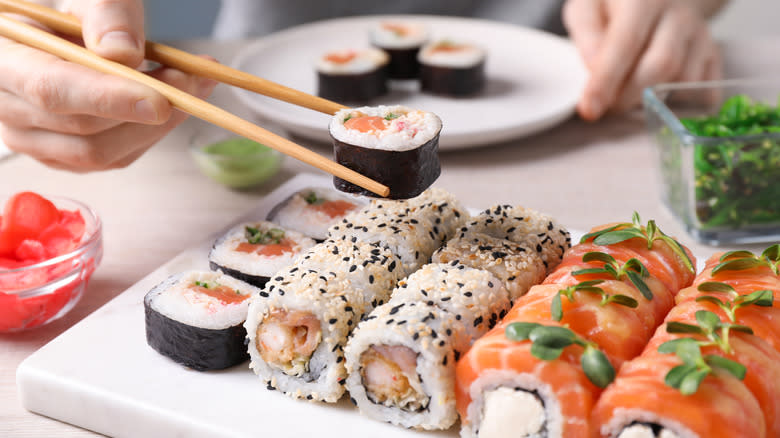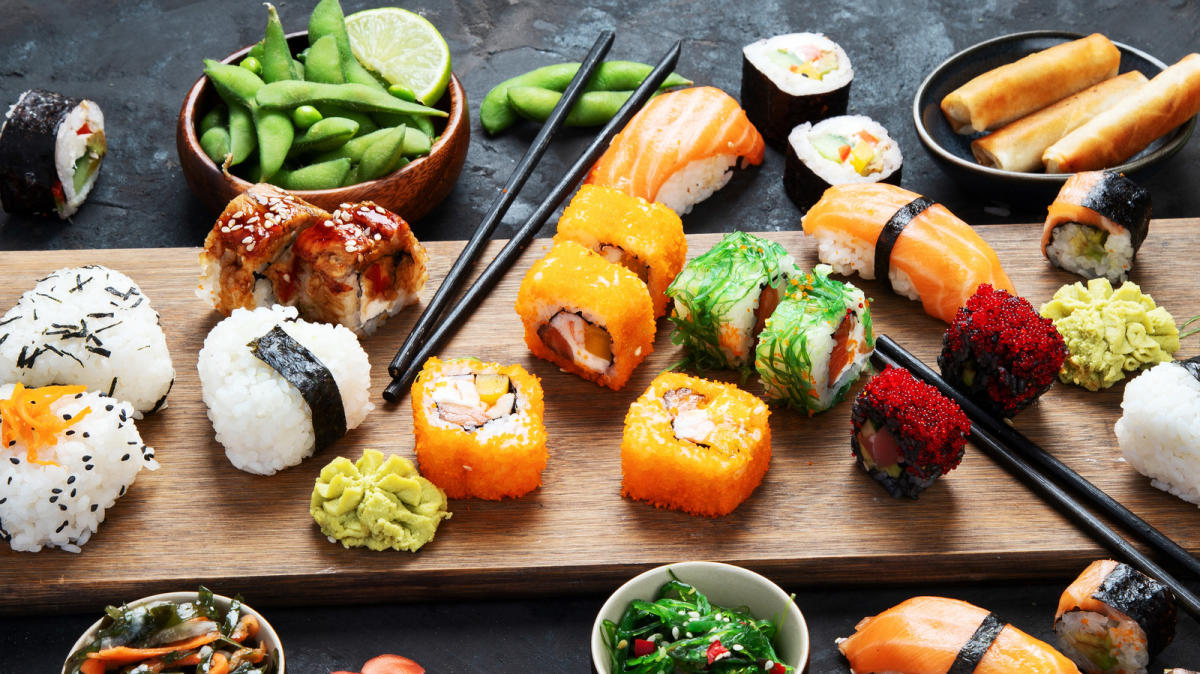Japan is an awe-inspiring country filled with history, tradition, culture, and, of course, great food with a wide variety of dishes everyone should try at least once. Boasting a wealth of ancient landmarks, Japan is home to many centuries-old eateries, among them a sushi restaurant that has stood for nearly a millennia. Tsurubesushi Yasuke is the oldest sushi restaurant in Japan and has been in existence for more than 800 years. With the roots of sushi in Japan (which are tied to the spread of Buddhism) dating all the way back to the sixth century, this restaurant is steeped in tradition. Founded in the late 1100s in a small town called Shimoichi in Nara Prefecture, Tsurubesushi Yasuke’s most popular specialty, ayu sushi, comes from the restaurant’s proximity to the Yoshino river. What’s more, Tsurubesushi Yasuke’s prominence in the popular consciousness was solidified when it was referenced in the famed kabuki play “Yoshitsune Senbon Zakura”.
After a fire damaged the original building, a new three-story wooden structure was built in 1939 that still stands to this day, welcoming throngs of visitors wishing to sample historic and delicious sushi. The beautiful building is a hearty distance from the nearest train station, Shimoichiguchi Station, but visitors will note that it is, indeed, worth the journey for the opportunity to sample the local delicacy of ayu sushi and absorb the feeling of dining inside a veritable historic time capsule.
Read more: 15 Different Ways To Cook Fish
A Sought-After Specialty At Tsurubesushi Yasuke Restaurant

The highlight of the menu at Tsurubesushi Yasuke is most definitely the ayu sushi. The Nara Prefecture area in which Tsurubesushi Yasuke is located has no sea but rather a river. As such, the sweetfish called “ayu” is sourced from the local Yoshino River. The fish aroma is fragrant with firm flesh and a refreshing light taste. The name of the restaurant, Tsurubesushi, is named for this specialty sushi, the fish for which is vinegared and pressed into the shape of a well bucket, or “tsurube” in Japanese, and filled with rice.
Though centuries have passed in the life of this restaurant, very little has changed with the exception of the newer building from the late 1930s and some of the preparation for its famous tsurube-sushi. Nowadays, the restaurant uses a salt-marinated ayu fish rather than the traditionally lactic-fermented fish. With that said, the well-bucket shape is largely the same as it ever was. In addition to doing general research regarding restaurant etiquette, visitors will note the necessity of making advanced reservations in order to enjoy this historic restaurant and indulge in its locally-sourced beloved specialty sushi.
Read the original article on Tasting Table.


